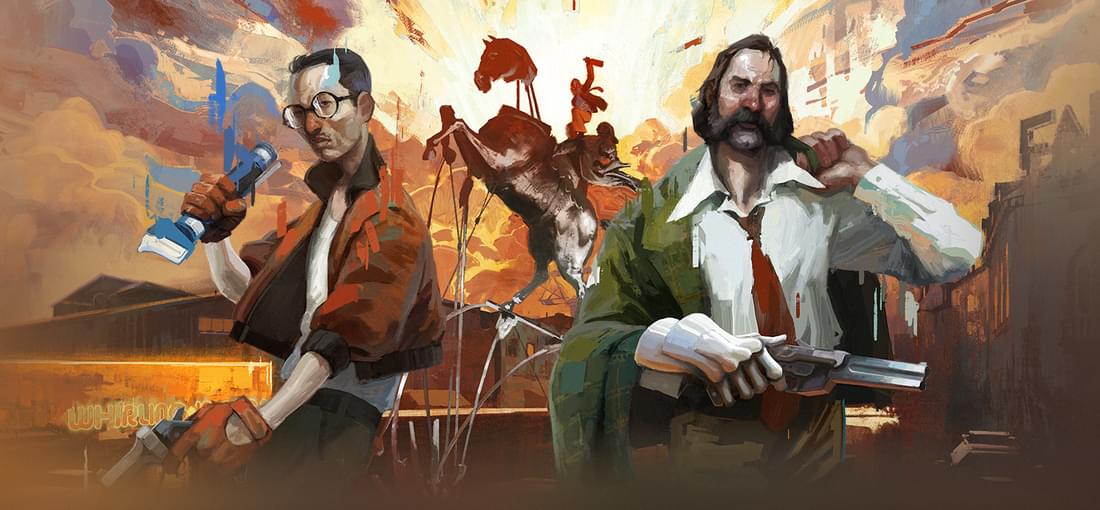


Colony Ship opens with the musical strains of a melancholy western and a main menu that looks like the well-worn cover of a paperback space opera from the 1960s. The menu reveals the subtitle: "A Post Earth Role Playing Game." From the outset, the game pays homage to a trio of core inspirations: HBO's Deadwood, Heinlein's Orphans of the Sky, and Interplay's Fallout. If you enjoyed any of those works, the question is not whether you should play Colony Ship but when you should play. CS is about a "generation ship": a slower-than-light vessel sent, lifetimes ago, from Earth to Proxima Centauri in hopes of establishing a colony at that nearest, yet still vastly distant, star. A generation ship rests on an unusual social compact. The first generation willingly sacrifices for sake of the last generation, who will have a shot at freedom and utopia in a new home. But the intervening generations have no choice and yet bear a sacrifice even greater than the founders'. For them, the Ship is neither Ark nor Mayflower; it's a prison and pressure-cooker. The game begins after a failed Mutiny has nearly wrecked the Ship and its society. You are a scavenger eking out an existence in the Pit, a cargo hold converted into shantytown. It's a perfect starting hub that offers rich opportunities for any character build. The process of creating that character cleverly weaves in the game's backstory. Gaps in your abilities can be filled by companions. They have their own personalities and values, but as long as your goals and theirs align, they can assist both inside and outside of battle. CS is an open game. You immediately have the run of the Pit, and soon add the Hydroponics Lab and the Armory, both full of NPCs, foes, environmental interactions, traps, loot, etc. If you like combat, there're tactical turn-based battles. If you don't, there's stealth, diplomacy, and hacking. Bottom line: CS combines the heart and soul of a small team with the depth and polish of large developer.

Disco Elysium is a game about scars. For most of my life, I believed that scars were a vestige of wound that had healed. But it turns out that scars are patches on wounds that never heal. A scar, like any other part of your living body, must be constantly remade. If you deprive your body of vitamin C (i.e., scurvy), the collagen that holds scars and fractures together becomes unstable and the old wounds open back up. Once we're broken, we never really come back together again. DE is about a broken man exploring a broken city that plays host to a broken society. Those breaks are mostly scarred over but, like a scorbutic, the man, city, and society have been starved of something essential to regeneration. When the scars in the man and the society begin simultaneously to burst, you're invited to decide how to address both the widening wounds and the underlying spiritual malnourishment. If there is a way in which DE is most like PS:T, it is that both of them are about decoding a story of scarrified and tattooed flesh to understand the past and plot a way toward the future. But DE and PS:T are not really similar games. Both beautifully (visually and verbally) depict unique settings with interesting, verbose characters. But PS:T is a fairly traditional RPG (you level up, fight enemies, memorize spells, etc.), while DE is not. DE's heart is its innovative "internal dialogue" system in which your skills talk to you. PS:T really has nothing like this. Where PS:T relies upon a roster of companions who serve as distorted mirrors of the protagonist's virtues and flaws, such that talking to them is in a sense talking to yourself, DE simply lets you talk to yourself outright. It's novel, it's fun, and it's funny. This is a must-play. It has left wounds, not the least to the ego of a proud writer who worked on not one but two lesser games inspired by PS:T (Primordia and TTON). (Abridged from https://steamcommunity.com/profiles/76561197989271430/recommended/632470)